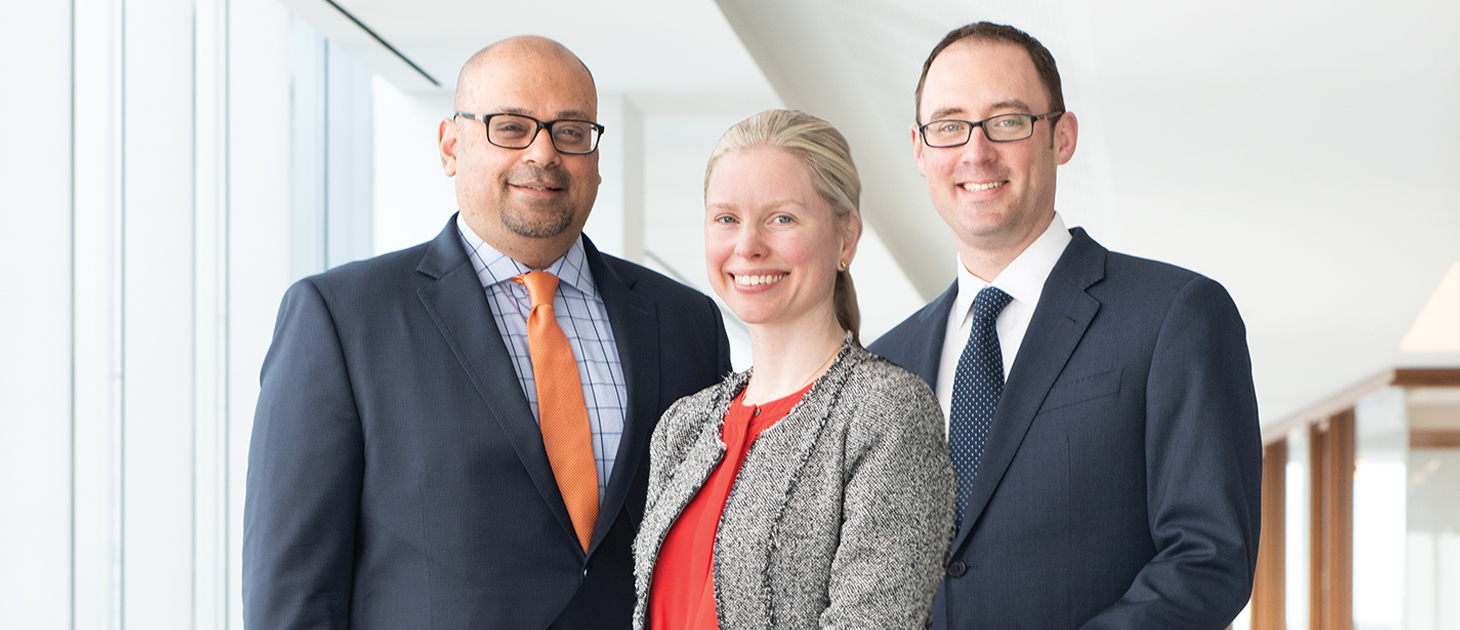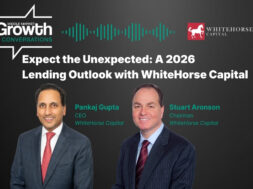A Wealth of Experience
With decades of experience and a deep network of relationships, the executives at Twin Brook Capital Partners are equipped to work with sponsors and portfolio companies on even the most complex transactions.

This content is sponsored by Twin Brook Capital Partners. It originally appeared in the July/August 2019 issue of Middle Market Growth.
Lending to companies that are controlled by private equity requires a healthy amount of due diligence, but these companies also require a fair amount of flexibility. That’s especially true in the lower middle market, where lenders need to play a much more hands-on role with a growing company.
The executives at Twin Brook Capital Partners understand that. With decades of experience and a deep network of relationships, they are well-equipped to work with sponsors and portfolio companies on even the most complex transactions. These qualities are valuable when the economy is healthy. In downturns, they can mean the difference between success and failure.
Twin Brook was started by Trevor Clark, who previously founded Madison Capital Funding in 2001. In 2014, Clark saw an opportunity to combine his experience with the resources of Angelo, Gordon & Co., L.P., and Twin Brook became Angelo Gordon’s direct lending arm for the middle market.
It didn’t take long for the new firm to establish itself. Focusing on companies with $3 million to $50 million of EBITDA (especially those with $25 million or less), it has since closed more than 327 transactions. Twin Brook now has over $9.6 billion in committed capital and has grown its staff to 60-plus employees.
Supporting Sponsors
Twin Brook’s eight partners have a combined 165 years of experience, and their backgrounds and personal networks enable the firm to go beyond lending. The firm sees itself as a financial partner—a role that is particularly valuable in the lower middle market, where Twin Brook does more than 90% of its deals.
For Twin Brook, working with clients involves more than just capital, says Senior Partner and Chief Credit Officer Drew Guyette. “It’s a relationship. It means supporting the sponsor’s growth strategy.”
In today’s market, money has become a commodity, and a crowded field of lenders makes it difficult to stand out. Fortunately for Twin Brook, that hasn’t been a problem. “What really differentiates us is execution, long-term relationships with private equity sponsors, and knowledge of a particular industry space,” says Faraaz Kamran, senior partner and head of the health care initiative at Twin Brook.
Linden Capital, a private equity firm that Twin Brook’s executives have worked with on multiple engagements, can attest to that. “Our firm has been doing business with the senior management team of Twin Brook for over a decade,” says Brian Miller, managing partner and co-founder of Linden Capital. “We value the relationship and have found them to be consistent and thoughtful in their partnership with us.”
Every year, Twin Brook talks to some 550 private equity firms and it reviews about 1,000 new opportunities in the fragmented lower middle market. The firm historically says no to more than 97% of those opportunities, according to Guyette, but the sheer volume of deals gives Twin Brook a deep understanding of the market.
In addition to the vast number of opportunities it reviews, Twin Brook’s system of tracking loans helps it spot problems and get ahead of them. “We’ve structured our approval process in a way that eliminates the ‘whiff factor,’” Kamran says.
“We Will Be There”
Barring a major problem discovered during due diligence, sponsors can count on Twin Brook to provide funding when needed.


“That’s something that is extremely important to our clients. The day you need us to fund the deal, we will be there on the agreed-upon terms with the correct amount of money, not $5 million less,” Kamran says. “There’s no bait and switch, such as charging more at the last minute when a lender has the borrower over a barrel.”
Twin Brook isn’t fazed when there’s a snag on a deal—often, someone at the firm has seen a similar challenge before.
“When you get a curveball that’s stressing the borrower, it’s how you react to those situations that really proves the value of the lender,” Guyette says. “Some of our strongest relationships with clients have been forged in situations where the company was underperforming expectations.”
In one instance, Twin Brook was funding a health care practice management deal when two things went wrong at the same time. First, some of the physicians who sold their ownership stake became less productive after receiving their payout. Second, a tuck-in acquisition went south. Although Twin Brook knew the risks associated with practice management investments, there was no way to foresee that both of these things would happen simultaneously.
Despite the bad news, Twin Brook reacted calmly. The team sat down with the sponsor and “went detail by detail, physician by physician, and worked out how to get from where we were to where we should be,” Kamran explains. After Twin Brook granted the sponsor a few quarters of relief from its financial covenant, the private equity firm was able to get the deal back on track.
On other deals where challenges arise that require outside assistance, Twin Brook has plenty of contacts it can turn to for backup, Guyette says. “Twin Brook has this huge Rolodex of resources and consultants that we can draw on to help remedy problems.”
Navigating Rough Economic Waters
At a time when many economists are forecasting an economic downturn, the experience of Twin Brook’s seasoned management team may become especially valuable to sponsors.
“We’re distinctive in that everybody on the investment committee and the vast majority of our team leaders and originators went through recessions together, specifically in 2008-2010,” Guyette explains. “Going through such times together taught us some best practices, so now we have a blueprint for these situations. That is a wealth of knowledge that can’t be replicated.”
Linden Capital is among the firms that have benefited from the Twin Brook team’s experience in both strong and weak economic periods. “[Twin Brook’s] consistency has remained through different business cycles and we view that as an integral part of our relationship,” Miller says.
Twin Brook’s blueprint could serve borrowers well as economic growth slows. If and when that happens, the success of a deal could hinge on the Twin Brook team’s experience and expertise.
Human Capital: Key to Twin Brook’s Success
Private equity firms rely on their lender for financial capital, but its human capital can be just as important.
Although Twin Brook has a wealth of expertise in its senior staff, it also recognizes the need to invest in the next generation of talent. To that end, it has built a culture and a system designed to foster learning, both formally and informally.
Underwriting is at the heart of Twin Brook’s training initiatives. “We think the best deal folks are born and raised through underwriting,” Guyette says. The firm’s training focuses not just on cash-flow lending, but also on Twin Brook’s philosophy.
“Underwriting will continue to be our greatest center of growth, so it’s important to teach new hires that we view ourselves as more than lenders,” Guyette says.
Among the professionals who have risen at Twin Brook is Therese Icuss, who started at the firm in 2016 as a vice president of underwriting. Today, she is co-head of underwriting, co-managing over 30 underwriters across five underwriting teams. In addition, Icuss helped develop a formal 12-week training program, which she now manages. The program takes new hires through every stage of the deal process and brings in third-party experts to talk about legal, accounting, insurance and other specialties.
Still, there is no substitute for learning on the job, so Twin Brook’s senior team members are always available to help. “We have an open-door policy,” Icuss says. “All the partners and senior folks are very accessible to new associates. People here want to help each other succeed.”

This story originally appeared in the July/August 2019 print edition of Middle Market Growth magazine. Read the full issue in the archive.


